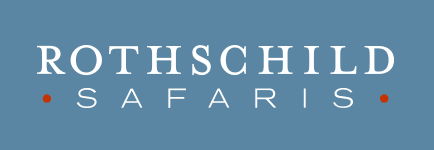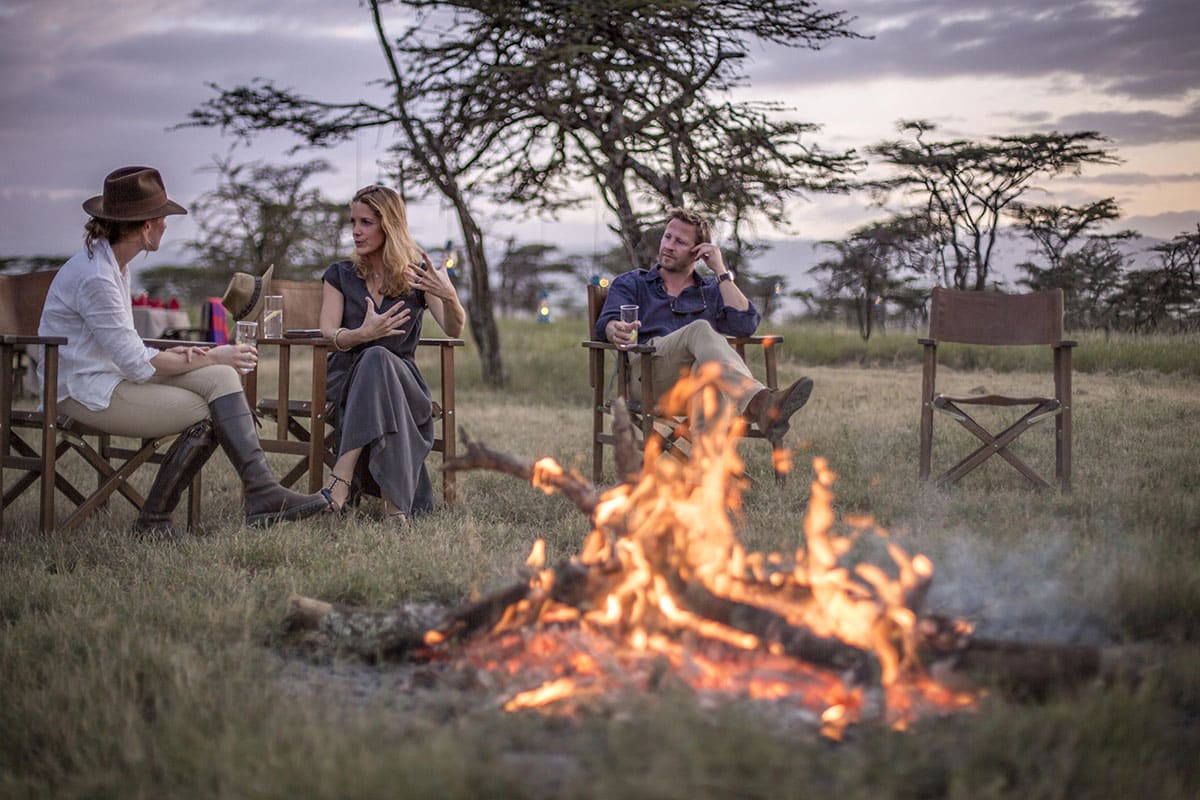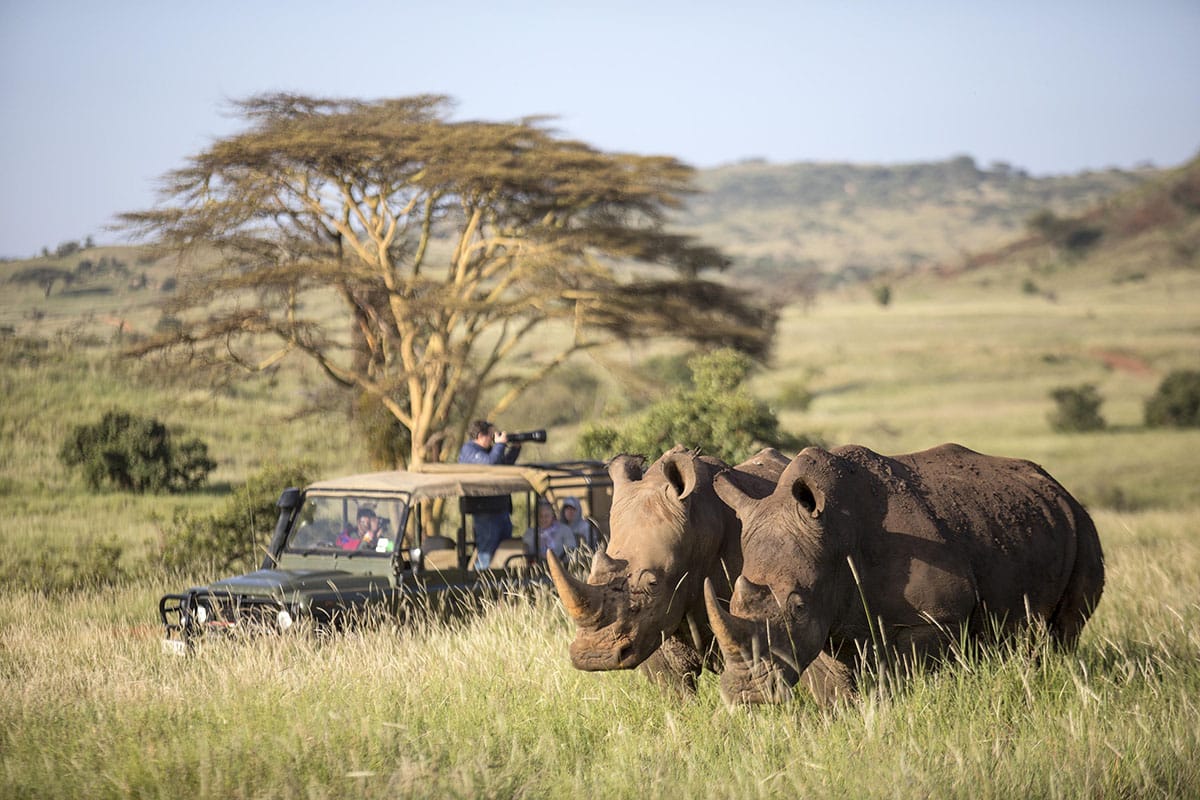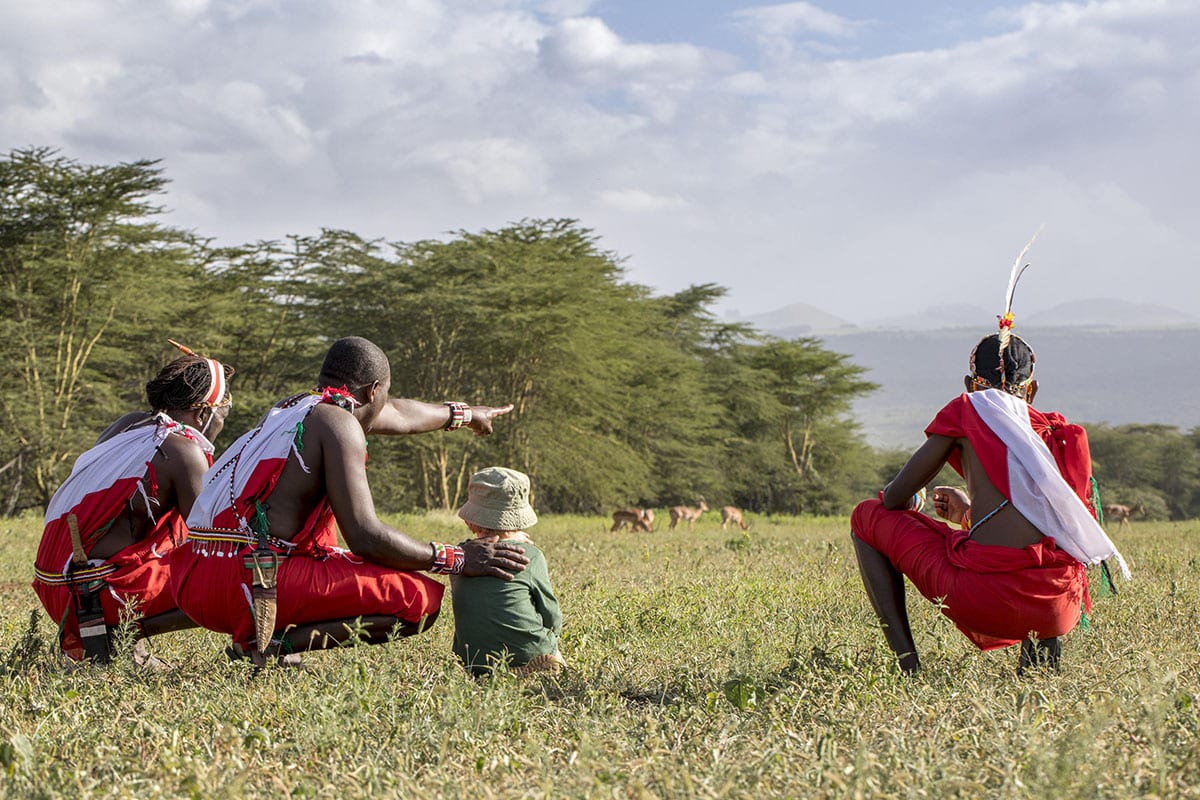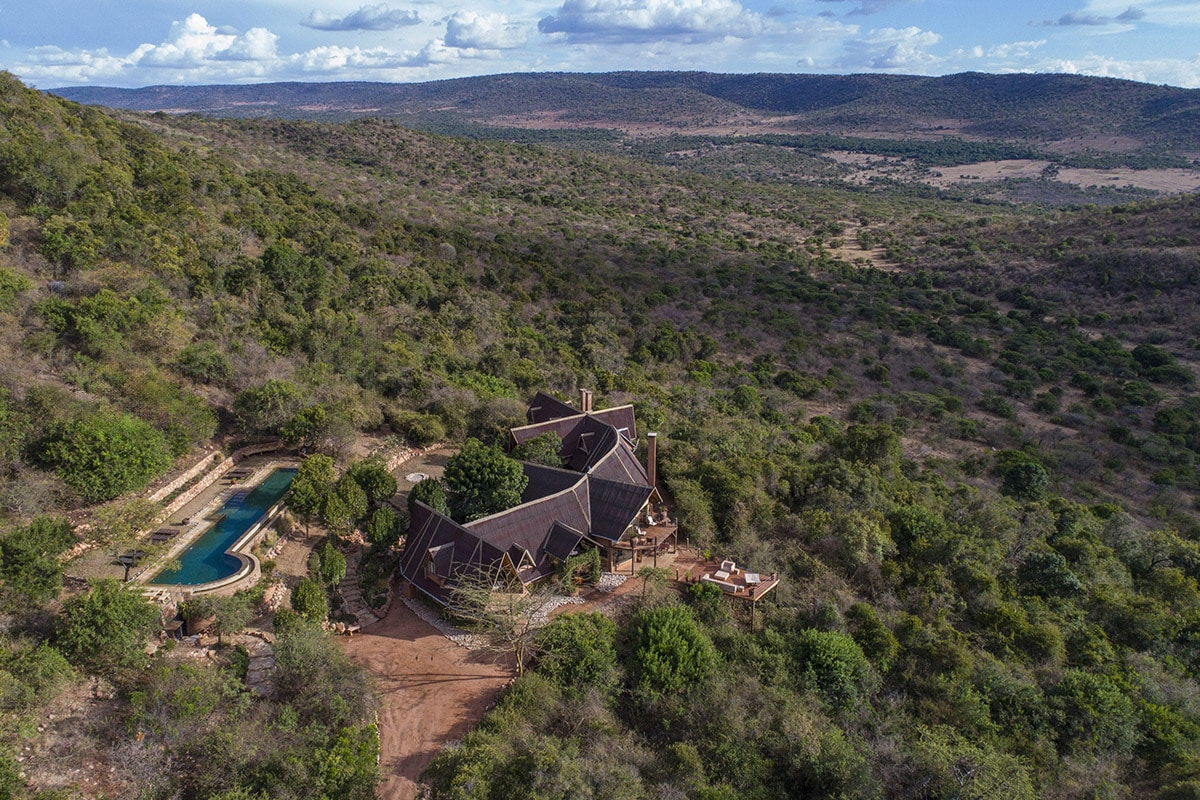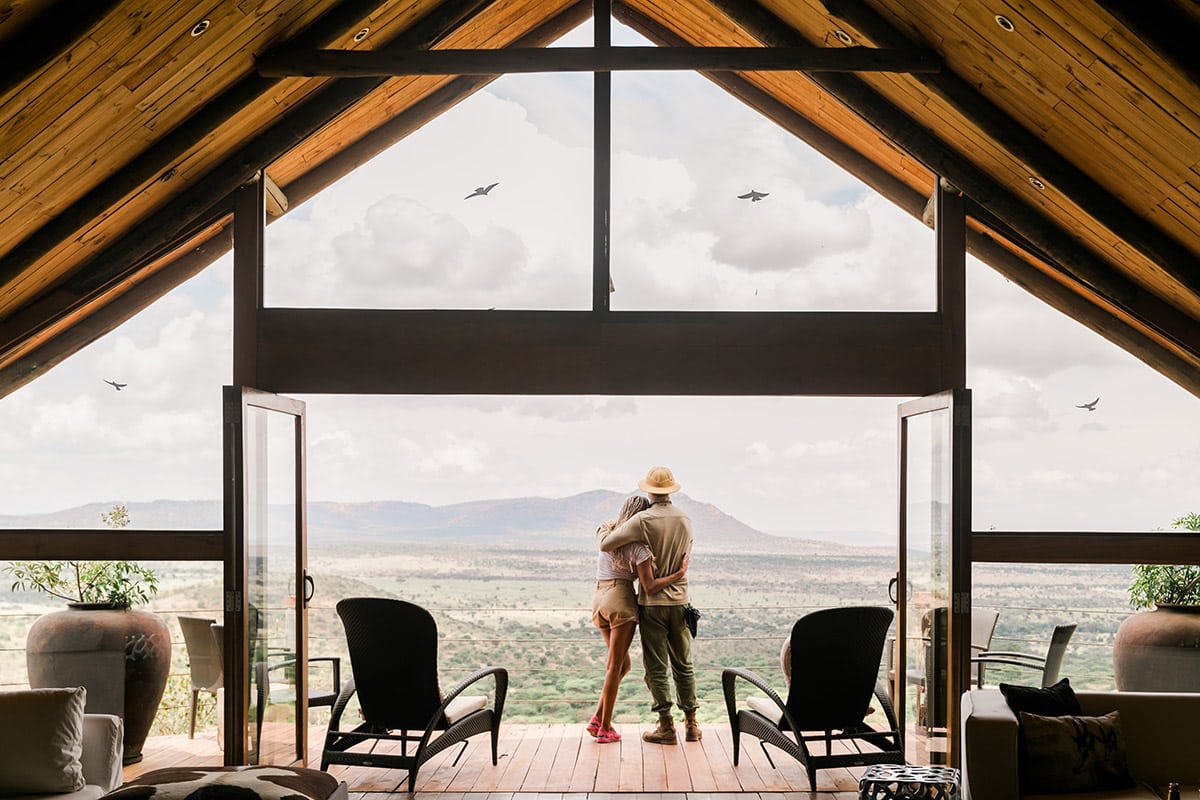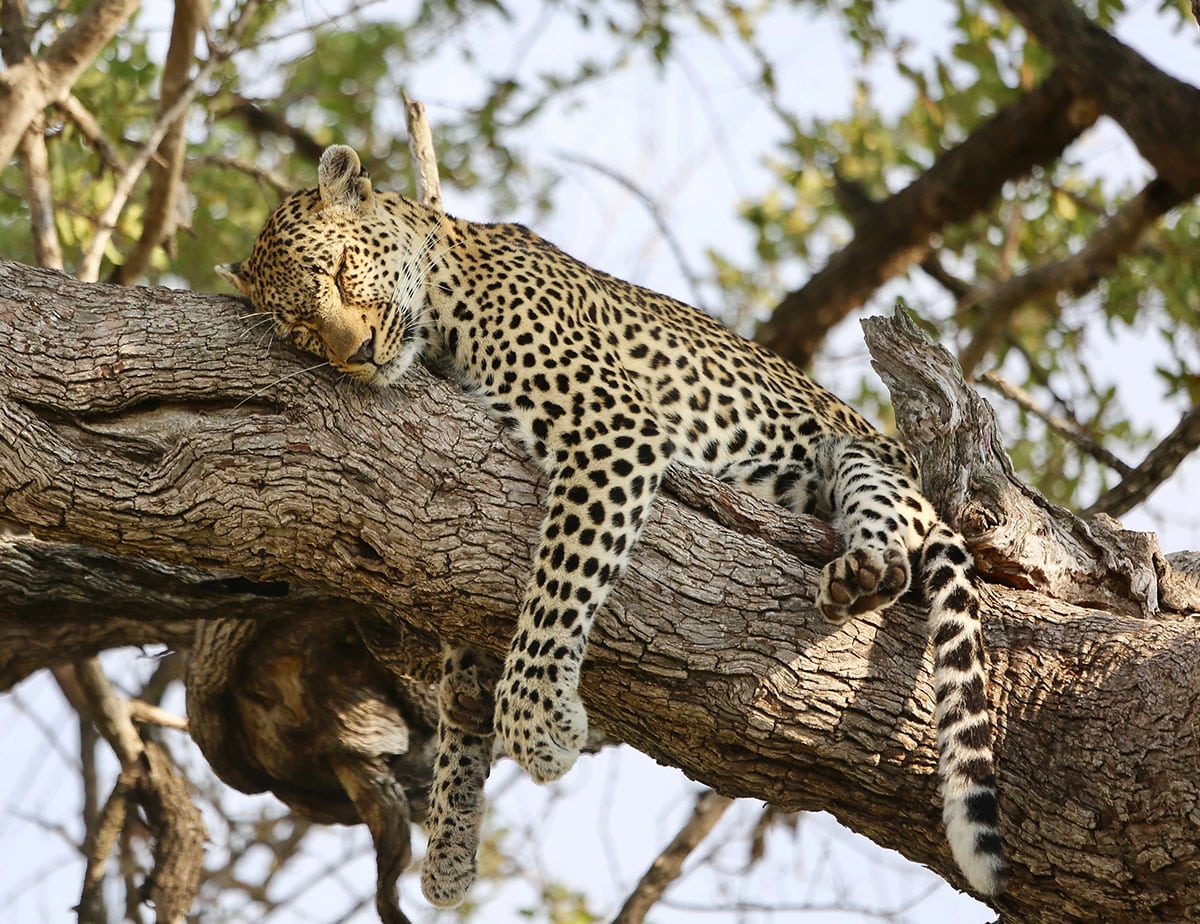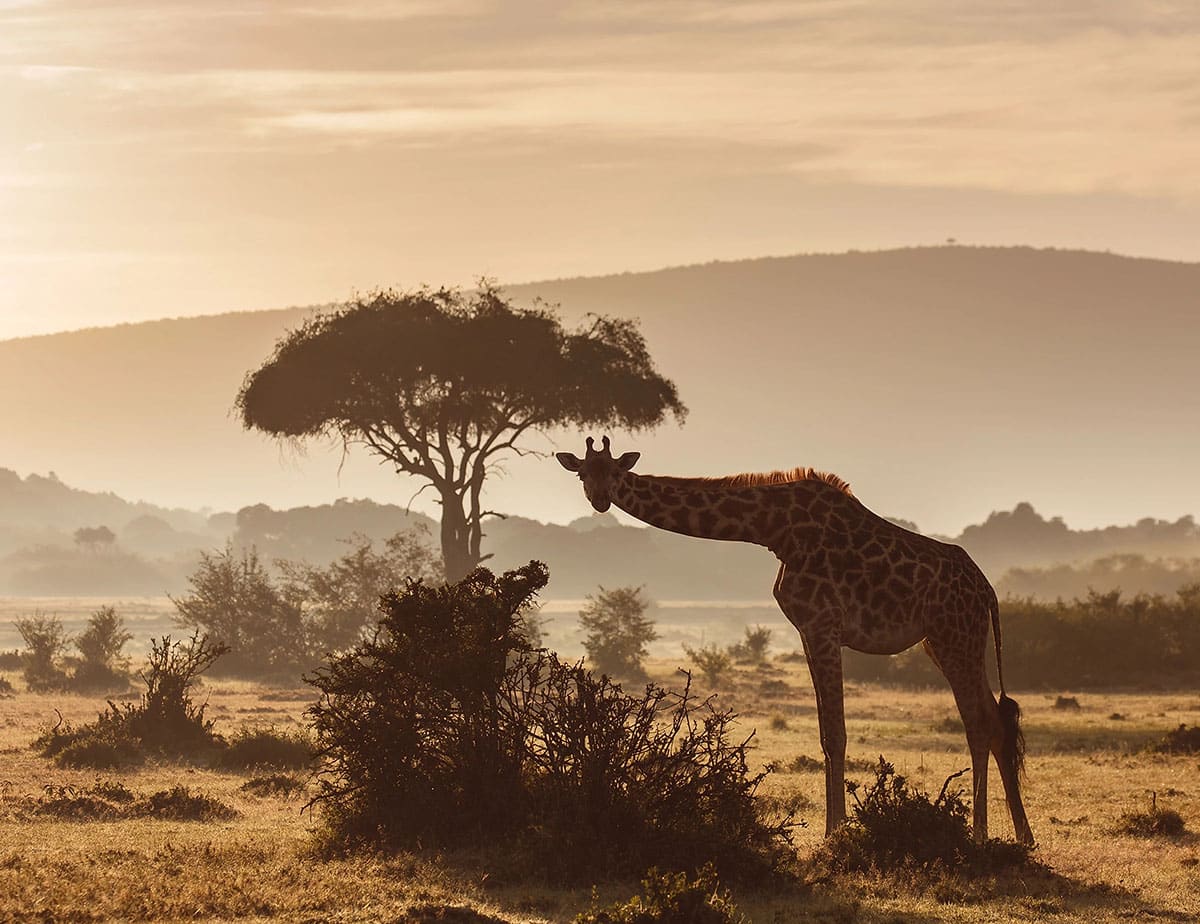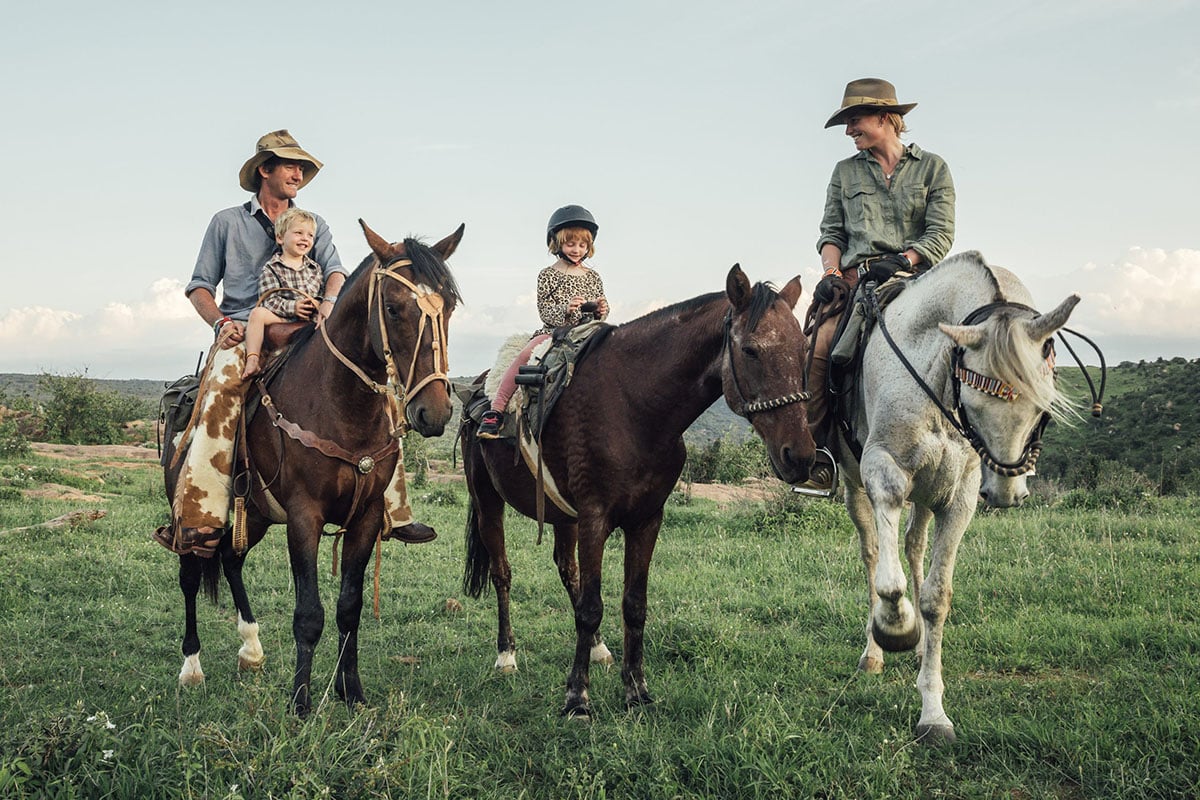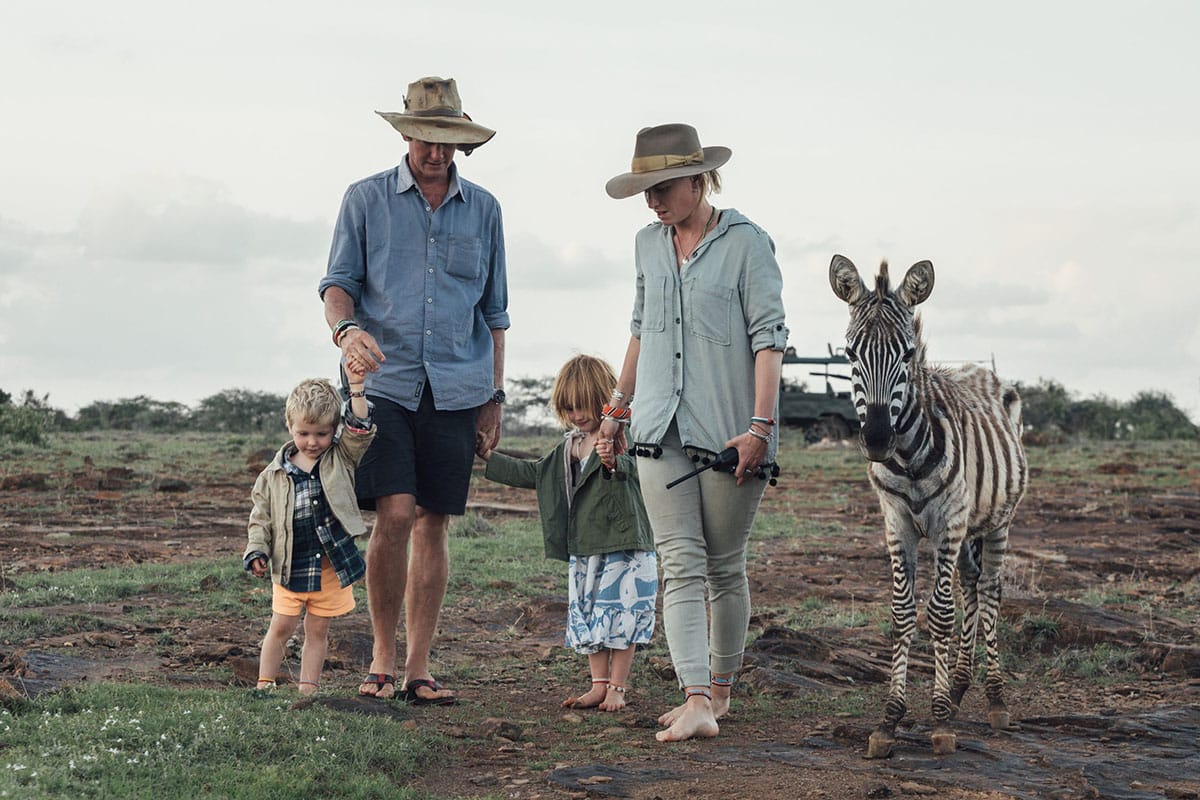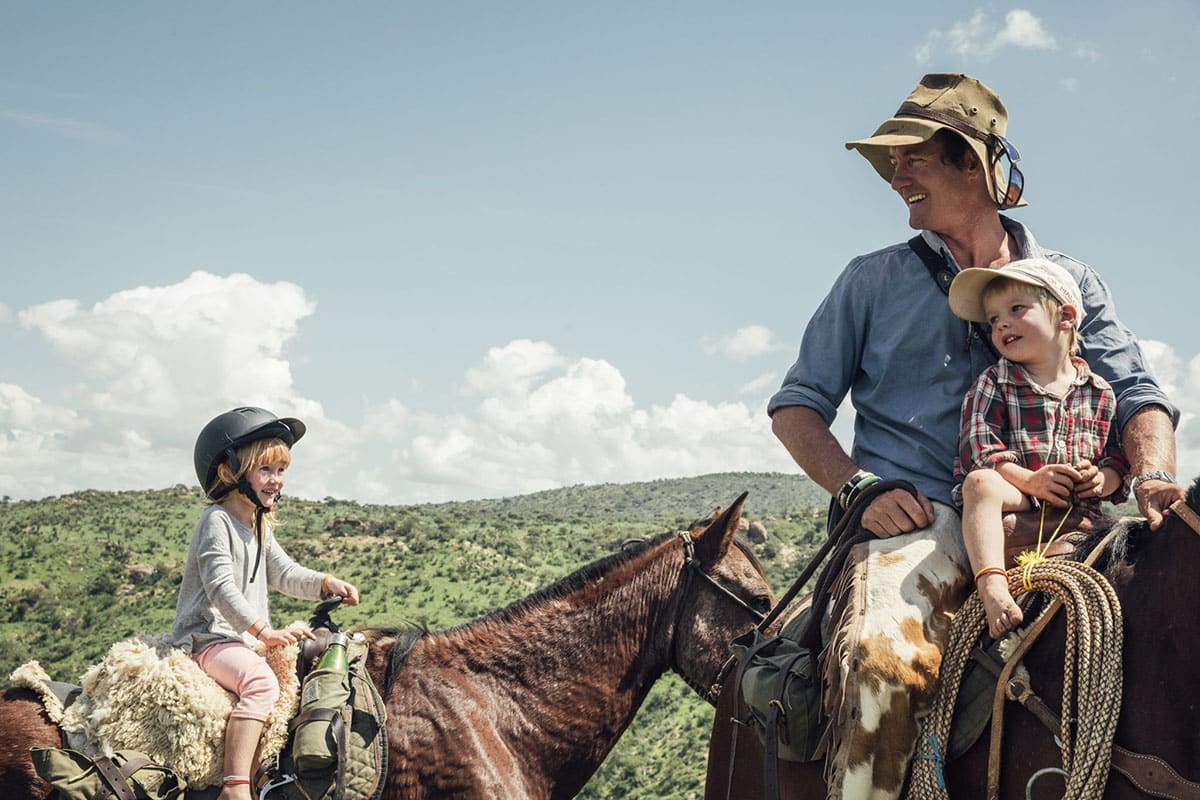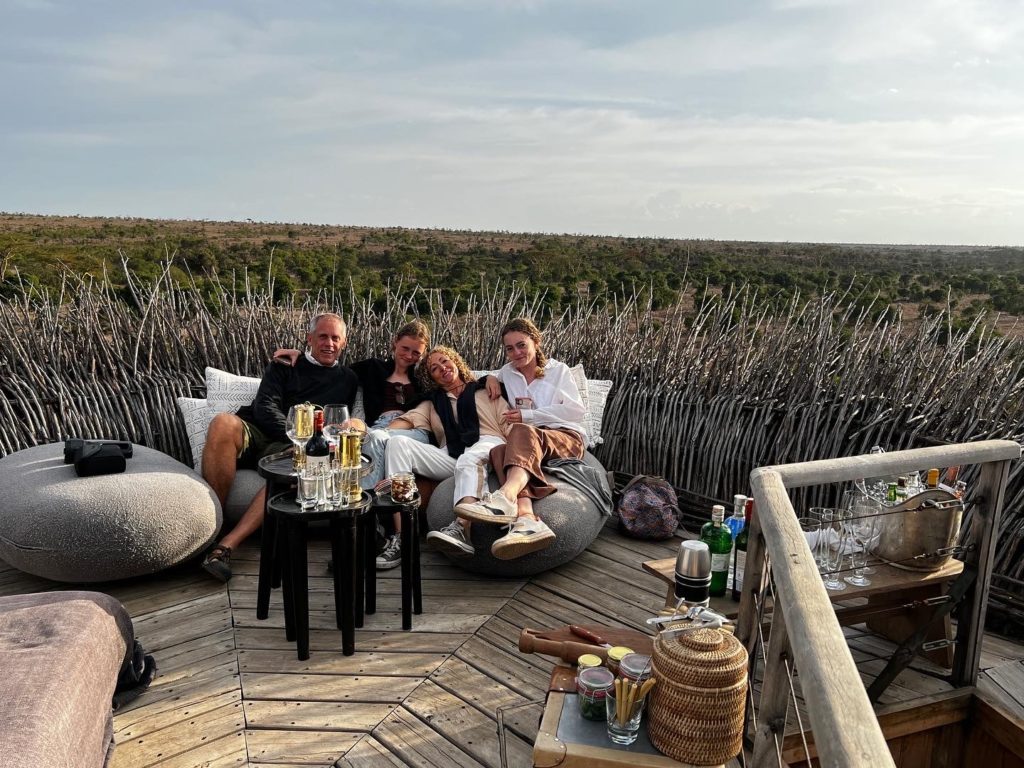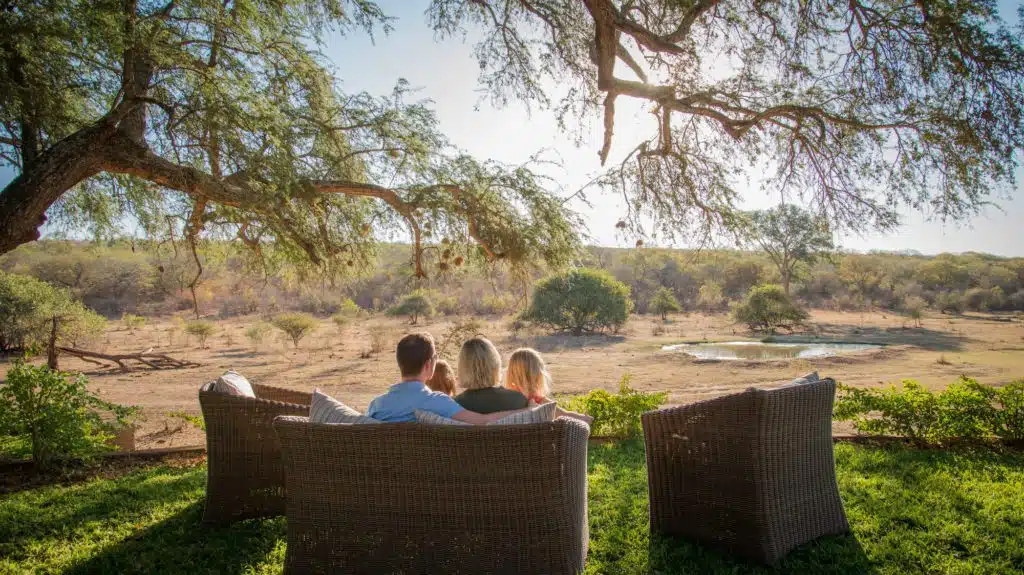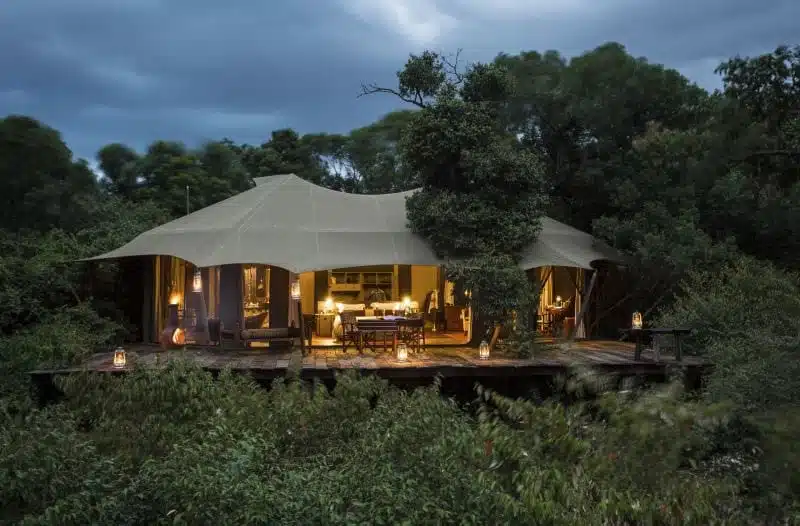ALL IN THE FAMILY
Family-Owned & Managed Safari Lodges
Even on a luxury Kenya safari, there is something to be said for the family touch.
Declared a British colony in 1920, Kenya saw an influx of Western immigrants, as evidenced in Karen Blixen’s classic biopic, Out of Africa. Establishing cattle ranches and other agricultural pursuits, predominantly British settlers found a new way of life, pioneering the landscapes and raising their families here.
Although there was compassion and integration with the Maasai and other tribes, the naivete of early settlers was less than favorable to the people and lands. Tracts were stripped and given over to grazing, the wildlife being hunted or expelled, and indigenous people were exploited. After four generations, this has served as a valuable lesson, and the steep learning curve has instilled a far greater appreciation for conservation and the rectification of past wrongs.
Today, many Kenyans retain a strong British heredity, and while many of the farmers may have returned to the United Kingdom, others remained, turning family reserves into private conservancies and using tourism as a way to rehabilitate the wilderness to its former abundance.
Children, grandchildren, and even great-grandchildren foster a profound sense of responsibility, and this is apparent in their execution of tourism and the establishment of programs and private reserves to protect and reinvigorate native wildlife populations.
Photos: ©Sirikoi Lodge
This also extends to the tribespeople, who have been employed and supported in establishing villages, schools, and medical services.
This heredity is of exceptional benefit to visitors, who can now view the landscape as it once was, learn of the history and understand the importance of conservation practices.
But there is more to visiting Kenya’s family-owned safari lodges than hearing tales of the past.
Revived Ecosystems
Living on the land, but with strong connection to the Western world, its ethics and principles, these families are in the perfect position to regenerate the landscapes on which they were raised; indeed, they have a vested interest in doing so.
Family-owned safari lodges have often been passed down through generations, only increasing this awareness, and affording the opportunity to create long-lasting change and significant investments.
Photos: ©Cottar’s Bush Villa
With years of hard toil, many ecosystems incorporated into private reserves have been rejuvenated, making game viewing superb. Some family-owned safari lodges even go so far as to develop rehabilitation programs, to care for injured or orphaned animals or reintroduce rare and endangered species. An example of this is Sarara Camp in Samburu county, owned by the Bastard family for four generations. The grandparents, Piers and Hilary, themselves third-generation Kenyans, formed a profound bond with the Samburu people, establishing tourism that gave back to the tribes. Their progeny went further, establishing Reteti Elephant Sanctuary and undertaking substantial conservation projects to protect the wilderness and its inhabitants.
Inherited Wisdom
Passed down from parent to child, the wisdom of the bush can only be learned over time. It will take a guide many years to gain the intrinsic knowledge required to understand the cadences of the wild. Instilled generation to generation, this knowledge becomes inherent.
For the visitor, this provides a rich knowledge of the region at your disposal. Families will have an intrinsic knowledge of the seasons, migrations, terrain, and the best places to explore certain locations for superb wildlife viewing. They will be familiar with the interconnections between herds and prides, may know where leopard dens or honey badger burrows are located, and understand the sometimes rhythmic wanderings of elephant herds.
Photos: ©House in the Wild
This wisdom isn’t confined to the region and its wildlife, and family-owned safari lodges have invariably developed deep connections with the indigenous people and their culture. Both with tribespeople and animals, this isn’t simply a strong awareness, it is a symbiotic relationship that is then shared with guests for a completely immersive experience.
At Lewa Wilderness, members of the local Maasai have become as much part of the family as the founders and their descendants. Sharing this remarkable region with guests since 1972, the Maasai are integral to the running of the property. Karmushu Kiama is an elder of the Il Ngwesi community, but has lived on site at Lewa Wilderness for 20 years with his family as the lodge manager and head guide. Not relinquishing his heritage, he still returns to his nearby village to tend his cattle.
It is this level of connectivity that is both possible and integral at family-owned safari lodges.
Part of the Family
When returning from their vacation at family-owned safari lodges, our guests continually enthuse over just how much they felt at home during their visit. This impression reaches far beyond the comfort and luxury of a property, and is both intangible and irreplaceable.
Guests are welcomed with open arms and given a reception as of a long-lost relative. They will sometimes dine with the family, meet the young children and be accompanied on game drives and horseback rides by family members. The families are the hosts, custodians, guides and matriarchs of their domain, and every visitor is cared for with attentiveness and compassion aligned with absolute professionalism.
Photos: ©Ol Malo
Relaxation is far from elusive at a luxury property, but there remains a certain impression of being a visitor, rather than a guest; that sense that it would be inappropriate to kick off your shoes and walk barefoot or retire to the lounge with a whisky and a good book. Staff are in service and somehow separated, rather than being kindred residents, and the air of familiarity only gained in family surroundings is absent.
Our clients often find that, on a multi-stage itinerary, it is at the family-owned safari lodges that they feel most settled, and find the greatest connection to the land and its people. Every luxury safari lodge gives its guests the warmest hospitality and faultless service. Staff go out of their way for the comfort and satisfaction of their guests, but traces of the once-removed hotel atmosphere always remain.
At Kenya’s family-owned safari lodges, walking the pathways, corridors and plains that have been trodden by multiple generations of the same lineage over the decades, the feeling of belonging is irreplicable.
Few places is this more evident than at Lewa House. Sophie Macfarlane and her husband Calum are raising the fifth generation at the Macfarlane homestead. So much that defines a family-owned safari lodge is embodied here at Lewa House. Sophie’s great grandfather knew the importance of stewardship, despite residing here in a very different time, and he instilled this in his offspring and, in turn, in theirs. ‘Leave space for wildlife’ is the time-honored family motto, and this is as integral to their daily philosophy as it is in their business. To visit Lewa House is to experience a conservancy in motion, almost as if staying on a working farmstead. The family hosts its guests impeccably while maintaining daily tasks across the property. They might rush to the aid of an injured animal in the middle of lunch or return from a patrol in time for afternoon tea. The wilderness is first and foremost in their priorities, without the slightest relinquishment of their exemplary care for their guests.
Wherever you travel across Kenya and throughout Africa, you can be assured of being made to feel at home. Staff will know your name and your preferences, no question will go unanswered, and the team will always be both approachable and available.
‘Home from home’ is their intention, and this is fulfilled to the utmost.
However, few lodges are homes in the truest sense. Family-owned safari lodges are precisely that, and have been so for generations; a genuine home that has been lived in for decades, adapted and developed to cater to guests in absolute luxury, but with the beating heart of the family echoing from its very foundation.
After all, home is where the heart is.
